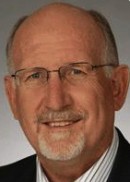Trayvon Martin, justice and the Golden Rule
 (Winter Park-Maitland Observer, April 4, 2012)
(Winter Park-Maitland Observer, April 4, 2012)
By James Coffin
The world’s great religions espouse a principle we’ve come to call the “Golden Rule.” It’s a universal call for all humans to treat others as they’d like to be treated. It’s not a complicated concept. Yet it’s sometimes difficult to carry out in practice because in any given situation we may have a number of values competing for prime consideration. Ethicists refer to it as having to “stack our imperatives.”
The case of Trayvon Martin provides a classic example. A young man is dead, and his killer, George Zimmerman, has walked free, not charged with any crime. Zimmerman says it was self-defense. Trayvon’s parents find that hard to believe. Impossible, in fact.
How can it be called justice when an adult, who’s been told by a police dispatcher to back off, continues to pursue, confronts and shoots an unarmed youth? As a parent, I can relate to the angst of Trayvon’s parents. And so can millions of other onlookers around the world who are watching news reports and making comments via social media. But it gets trickier.
Collectively, we Americans believe in “justice for all,” which includes a value we’ve labeled “innocent until proven guilty.” We believe in “due process” and “being tried before a jury of one’s peers.” So no matter how irate we may be about what has happened, George Zimmerman deserves the right to make his case before a court of law. It’s only there that all the competing facts and allegations can be appropriately assembled and evaluated.
But there’s a problem. For the past seven years we’ve had a law on the books in Florida — the “Stand Your Ground” law — that not only gives amazing liberties to any who simply “feel” threatened by someone else, but that also puts severe limits on the ability of law-enforcement officers to bring charges. In the absence of credible on-the-scene evidence to the contrary, a killer’s testimony may be all that’s needed to keep the case out of the courts altogether. In Zimmerman’s case, those ultimately responsible claim they couldn’t arrest him and still uphold the law.
In an ideal world, the ideal citizens would sit back and let the wheels of ideal government turn at the ideal speed and produce ideal justice. But we don’t live in an ideal world. Experience has taught us that for a variety of reasons, government doesn’t always deliver on its promise of justice for all.
Recognizing the ability of government to get it wrong, our Constitution’s First Amendment (in what we call the “Bill of Rights”) grants freedom of speech, freedom of the press, freedom to peaceably assemble and freedom to petition the government for redress of grievances. Since mid-March, these constitutional provisions have increasingly been invoked in Sanford and throughout the nation.
With all of the foregoing in mind, on March 28 the Interfaith Council of Central Florida (whose members include representatives from the Buddhist, Christian, Hindu, Jewish, Muslim and Sikh faith traditions) issued a statement that “calls upon officials at every level to move quickly and transparently in seeking justice in the case of Trayvon Martin. We call upon all citizens to continue, in a decidedly determined yet respectful and peaceful manner, to demand that government decision makers not rest until justice has been served and until trust has been restored. We urge our governor and legislators to expeditiously revisit the law that allowed this terrible tragedy to occur.”
In other words, the Interfaith Council has asked that everyone follow the Golden Rule as we seek justice for all.
James Coffin is executive director of the Interfaith Council of Central Florida.
